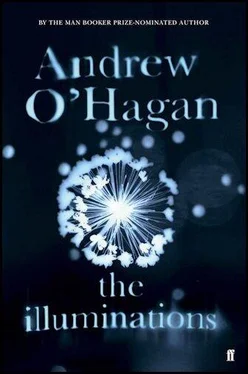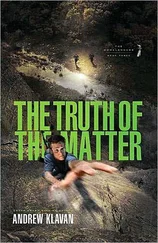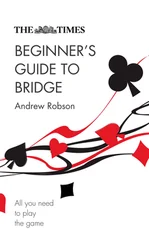‘Not tonight, Anne. It’s awful cold.’ But then she took her neighbour by the arm and walked just a little way down the path leading to the bandstand. Anne looked and smiled to see the warm colour on Maureen’s face, the street lamps drawing out her eyes and the black distance making a perfect background as they walked along the front. Two yellow blinks appeared out there in the part of the sea where the water was darkest. Anne stopped and Maureen stopped.
‘What was that light?’ Anne said.
‘The Isle of Arran.’
To Anne it was all the walks. She couldn’t name them perhaps but she could see them in her mind. The ones she took as a child by Lake Ontario with her mother and father. The boating pond at the Menier Camp where she strolled with a Leitz Leica, 1948. It was all of these and other places as the night enclosed the promenade and the lighthouse again blinked twice. ‘I had a friend,’ she said. ‘We used to go rowing in the boating pond. A long time ago. They called us the Two Annes.’
THE ADDRESS BOOK
They didn’t need the fire brigade. It was all done with a phone call and an opened window. Anne, back in the flat and sitting up looking through the pages of her address book, found postcards of places she had liked when she was no longer young.
Campbeltown.
Girvan.
Blackwaterfoot.
Oban.
She knew of a morning in Oban with curls of butter at the guesthouse table, porridge and oatcakes, mackerel paste. The house was high on the hill above the port, under the pine trees, a place to be with Harry. Looking at the postcard, it wasn’t the house that came back to her but the breakfast table and the night before, the sound of him asleep. She read a story in an old, water-damaged book she found in the bookcase. She couldn’t have said the title of the book or the name of the guesthouse, but she could
remember the story about the Lady Appin, who kept a painting of her lover in her private bedroom, a soldier who then died in the foreign wars. Anne couldn’t have told you his name any more, not a whisper now of his name, but Lady Appin locked her door and wept for a year and picked at the paint until the canvas was totally blank. ‘Maybe I can live,’ she said, ‘because now he lives nowhere but in my mind.’
She placed the postcards at the front of the address book. It had been with her since her days in New York and later she got it bound in red leather. She opened it at the letter T and a photograph fell out, a black-and-white snap of a boy and girl. After staring at it for a long time, Anne went and got the scissors and slowly cut the photograph in half, placing one piece in the book and dropping the other to the floor.
By the sea, by the sea, by the beautiful sea.
You and me. You and me.
‘Documentary work is the future. It’s the truth, darling, the whole truth and nothing but the truth,’ he said. One time he left a note pinned to the door of the flat in Blackpool saying he’d just driven over on the off-chance and would be back for the Illuminations because Jayne Mansfield was turning them on and a Canberra bomber was doing a fly-past.
‘All my love. See you Saturday.’
When she was with him he only had one life. She fell asleep playing that song in her mind about the beautiful sea, his eyes in front of her, Harry’s eyes. When the room was dark a single beam fell onto the bed from outside and lit the address book, where a cut picture of a young boy lay on the open page.
‘It doesn’t flood the valley because there’s a good old dam holding it back.’
‘What you talking about, Major?’
‘I’m talking about the Helmand river.’
Scullion breathed out and nipped his cock. If you nip your cock in the wrong place you get piss on your boots. This was one of the helpful, sometimes philosophical facts that the major could retail at random. ‘What in the name of fuck is that noise?’ he said.
There was a guy peeing beside him. ‘Don’t worry,’ said the guy. ‘You’re cool. Stick with the programme. That’s not incoming fire, it’s just the rations truck choking on its Corn Pops.’
‘Its what?’
‘Corn Pops, dude? Don’t you eat breakfast in that dump you come from?’
‘We eat porridge, like the best human beings.’
‘Not us, Daddy. Not the Canadians. I’m talking Reese Puffs. I’m talking
Froot Loops
.’ The colonel laughed and it was one of those laughs that worked its way into a grunt.
‘That shit you people feed your children should be banned,’ Scullion said. ‘It’s toxic crap. No wonder those kids have two fucken heads and a massive need for semi-automatic weapons.’
‘That’s America, dude. Keep us out of it.’
‘You’re just America-on-ice.’
‘Whatever.’
Scullion stared at the mountains and thought about the dam while the sun sparked off the convoy’s mirrors. He peed into the bushes and spoke again. ‘But there’s drought and poverty down there, corruption like you’ve never seen and Terry bandits in their mud huts, begging to die for Allah. In time people will forget about the dam.’
He licked his lips and thought of R. White’s lemonade. In his memory he could see a whole crate of it in the cellar of a pub in Dominick Street, Mullingar, in the old, grey days before the heat. The colonel put away his dick and turned round to face Scullion.
‘But we can’t forget it. We can’t forget nothing because we’re running a mission here.’
‘The good thing is we’ll be giving those kids electricity once the turbines are installed,’ Scullion said. ‘That’s if we can pay enough bribes to the Taliban to let the power flow.’ A giant Mitsubishi crane roared past behind them. ‘That’s the job. And if we can haul all this kit up the valley and get the machines turning, then the Kajaki operation — this whole fucken thing right here — will have been the biggest public relations coup of the entire war, my dear boy.’
‘I ain’t your boy.’
‘You’re all my fucken boys.’
‘I’ll have you remember I’m a colonel with the 1st Royal Canadian Regiment.’ He smiled at Scullion: he knew his type. Everybody knew everybody’s type and they mistook it for experience.
‘Telling you straight. This operation’s a PR megaphone,’ Scullion said.
The colonel licked the salt from his middle finger. ‘Well, fuck
that,’ he said and poked the air twice. ‘Fuck all that. If it’s all about giving the ragheads a bit of hydro, that’s cool with me. But if you’re telling me we’re risking soldiers’ lives just to climb up there for a photo op, so our armies can justify the Yankee dollar. Fuck that.’
‘It’s all in a day’s work,’ Scullion said. ‘That’s our mission, that’s our task. So don’t knock it, Sookie. You’ll be back in Hog Town whacking pucks before you know it.’
As they rumbled along, Scullion tried to imagine Alexander the Great riding into the land of bones. Weren’t the brown plains and jagged mountains a hostile shadowland, a place of dark minds filtering the light? He saw old armies coming with their cigars and their bagpipes to slay the enemies of civilisation. He saw men with mules and brass bands dying of cholera in the boiling wastes of the southern desert. In his mind he pictured Alexander’s handsome face, young and fair with a cut lip, a hero driving his units through the snow-filled passes of the Hindu Kush, leading other men through clouds of mosquitoes and over the rapids of the Oxus, and greeting them with handshakes one by one as they arrived at the place of battle, their sarissas already crusted in blood.
Earlier that morning, Scullion had sat on the short wall of an abandoned compound to speak to Rashid. He considered the Afghan a good soldier: just the sort you want to be teaching to protect his country. Scullion imagined Rashid to be like the local helping hand in colonial life, a smiling
Читать дальше











